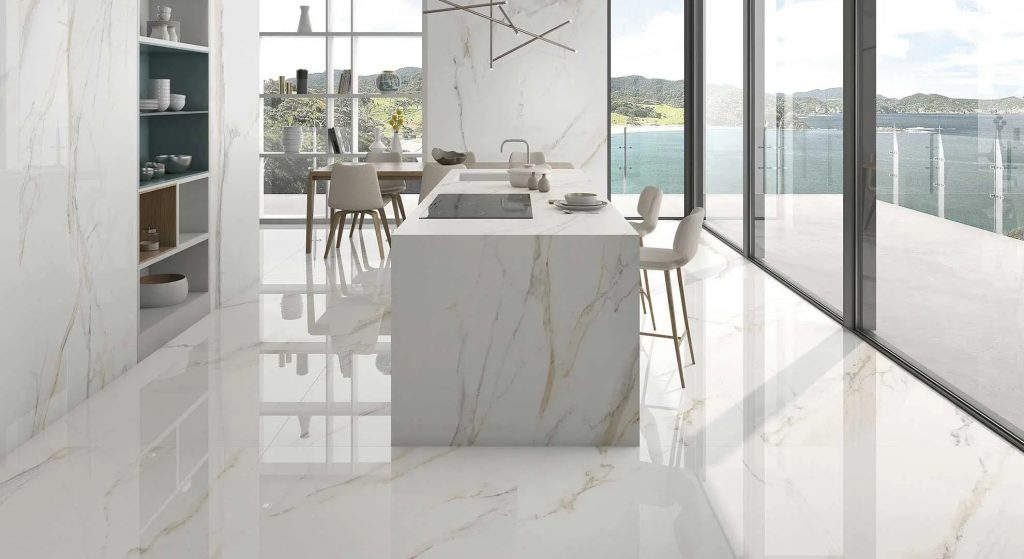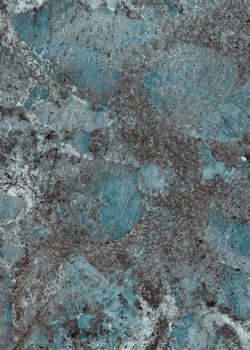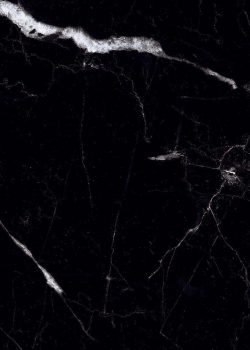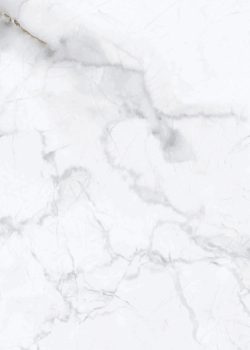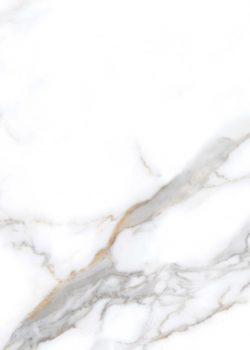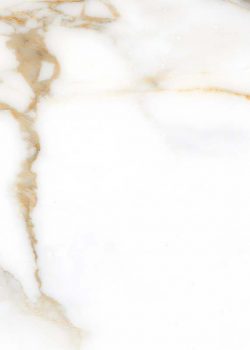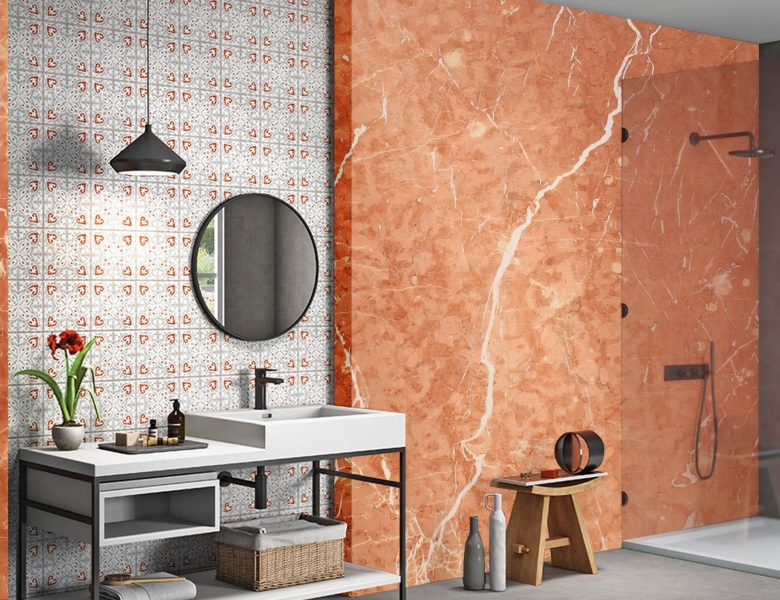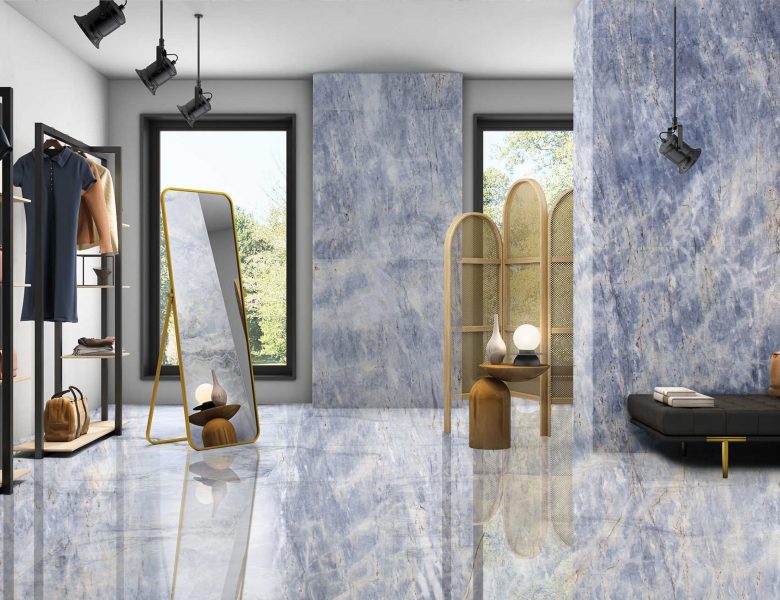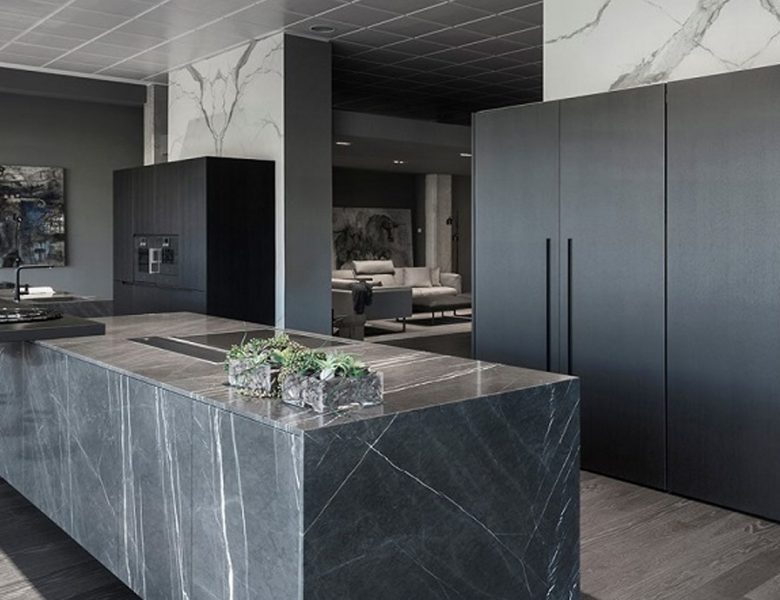In the vast realm of natural stones, porcelain stands as a modern marvel, seamlessly blending the beauty of nature with cutting-edge technology. As a versatile and durable material, porcelain has rapidly become a favorite in the world of design and architecture. This exquisite and enduring material, boasts a fascinating history that traces its origins back to the illustrious Tang Dynasty around 618 AD.
Unlike traditional natural stones, porcelain is a ceramic material crafted from natural clays (eg. kaolin clay), feldspar, and silica. Through advanced manufacturing processes, these elements are meticulously pressed and fired at high temperatures to create a material that is not only aesthetically pleasing but also exceptionally resilient. While initially challenging to produce due to its demanding firing temperatures, porcelain has evolved into a versatile and prized substance.
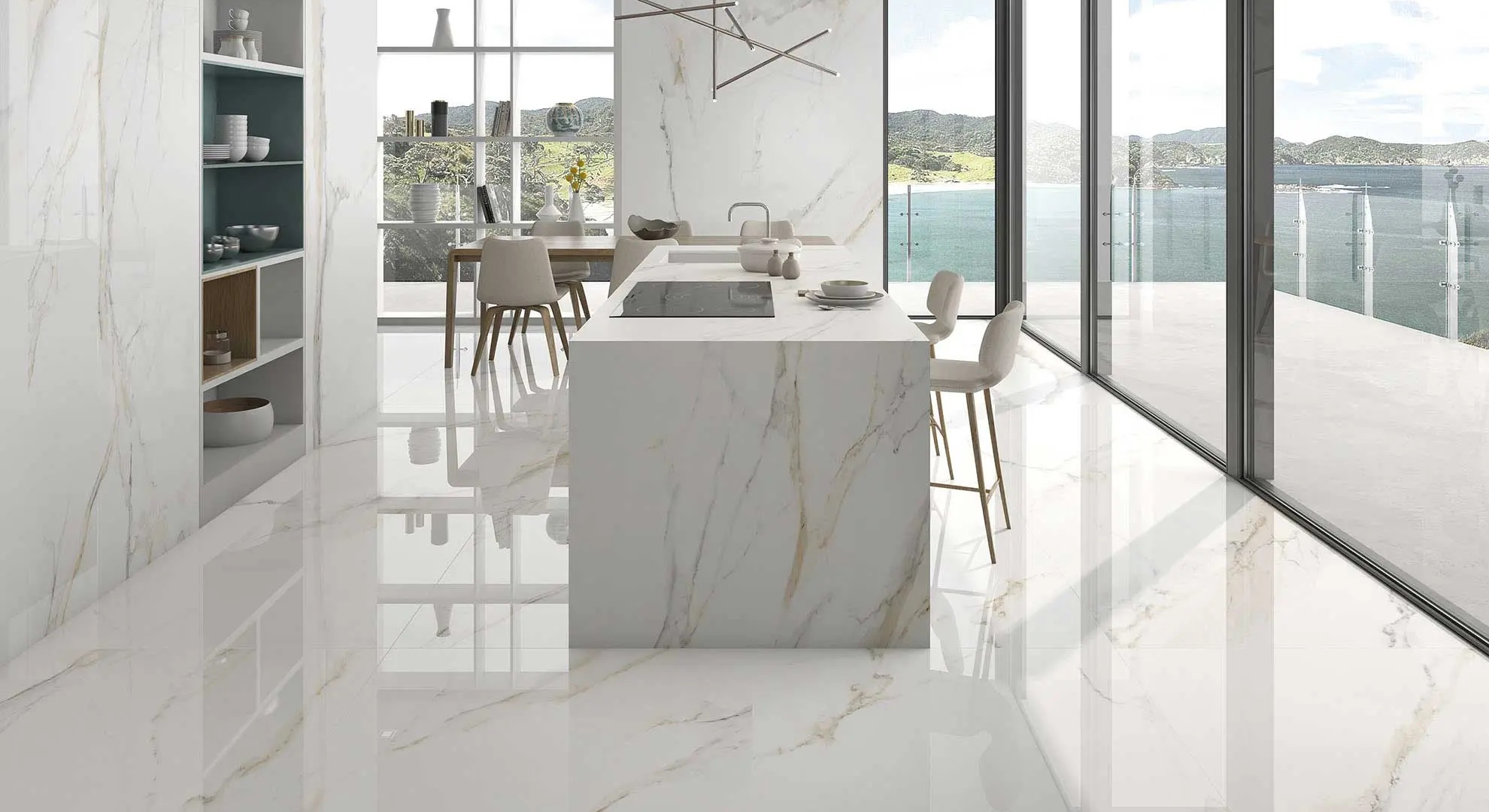
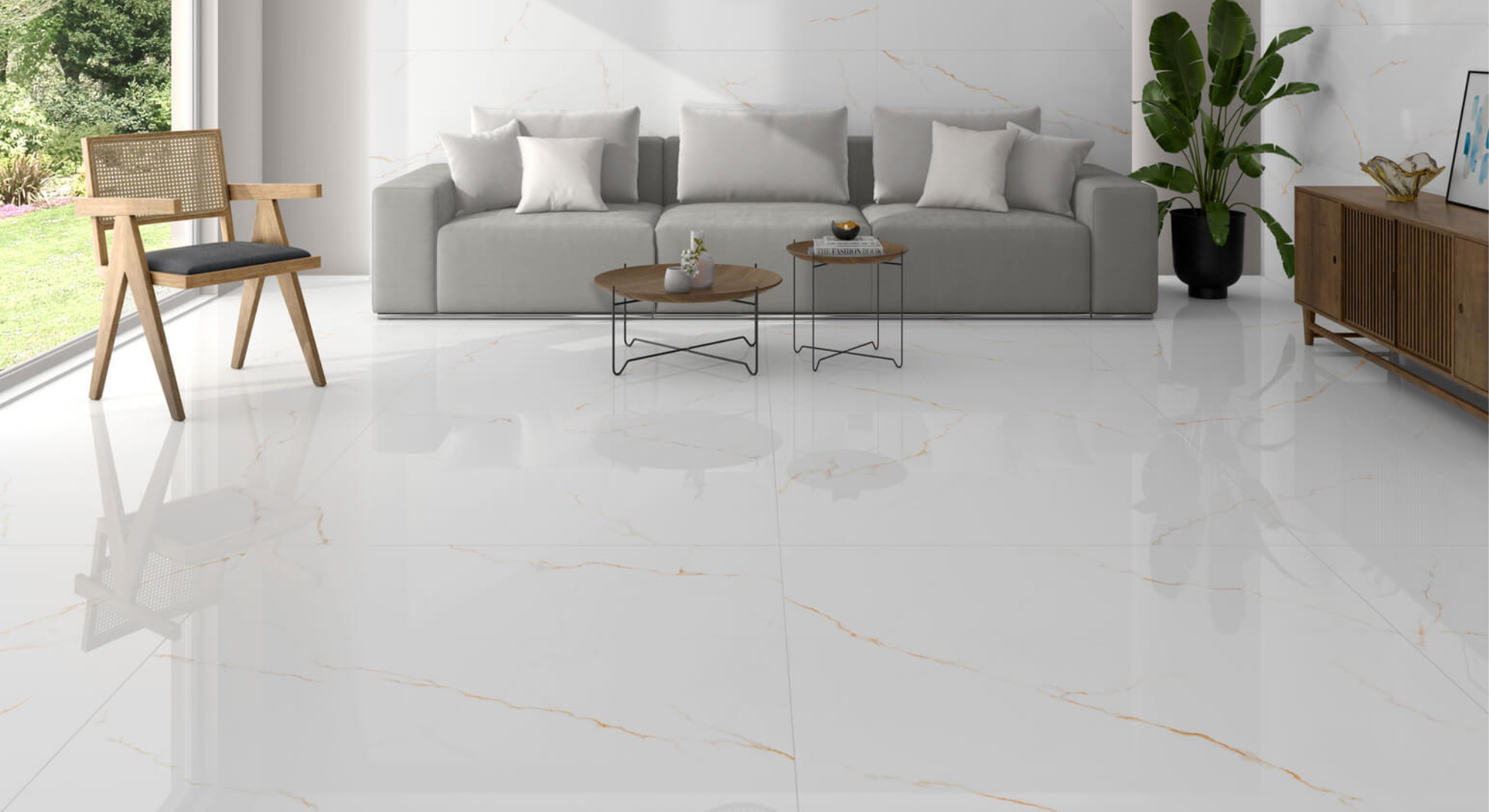
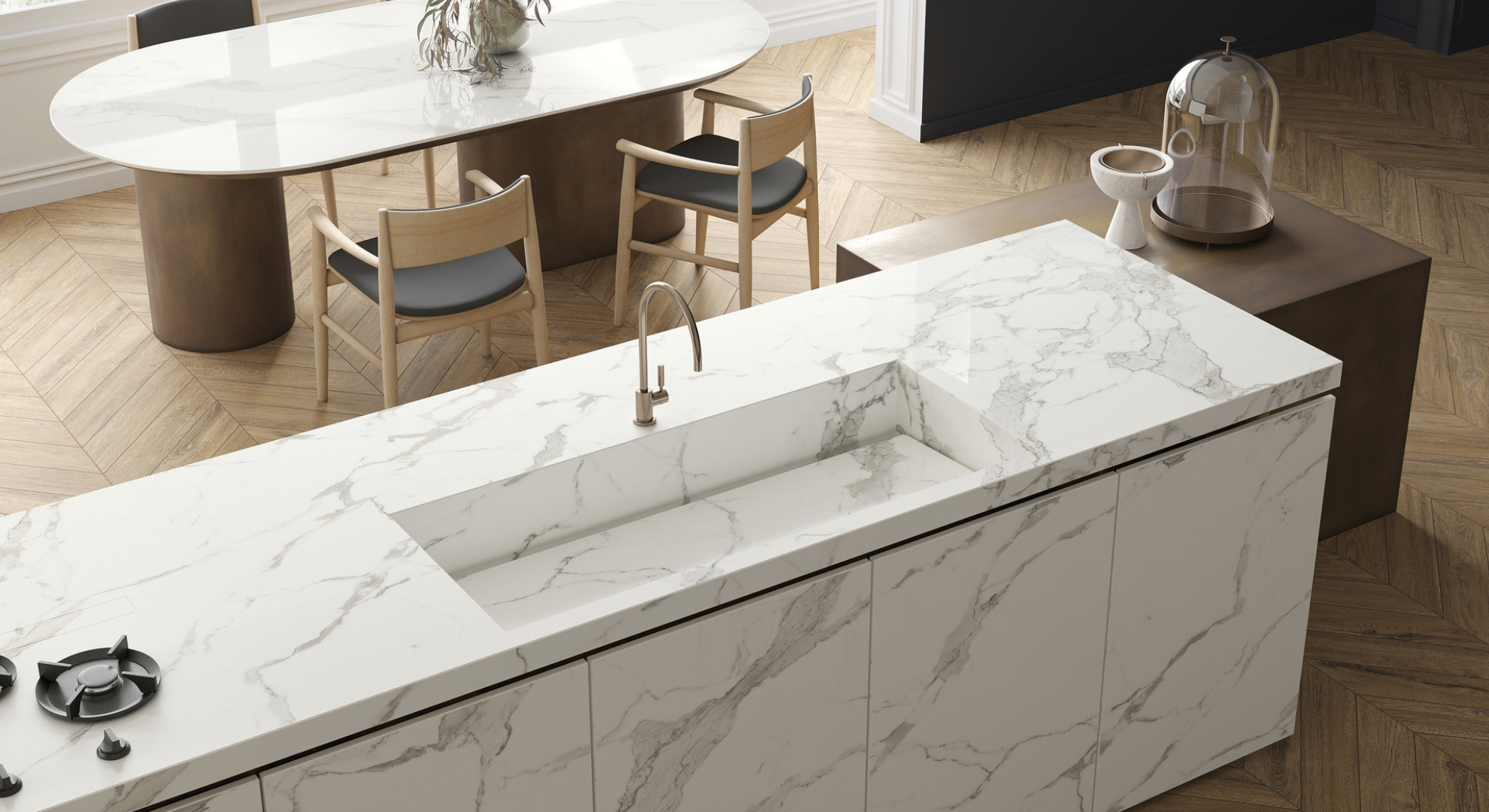
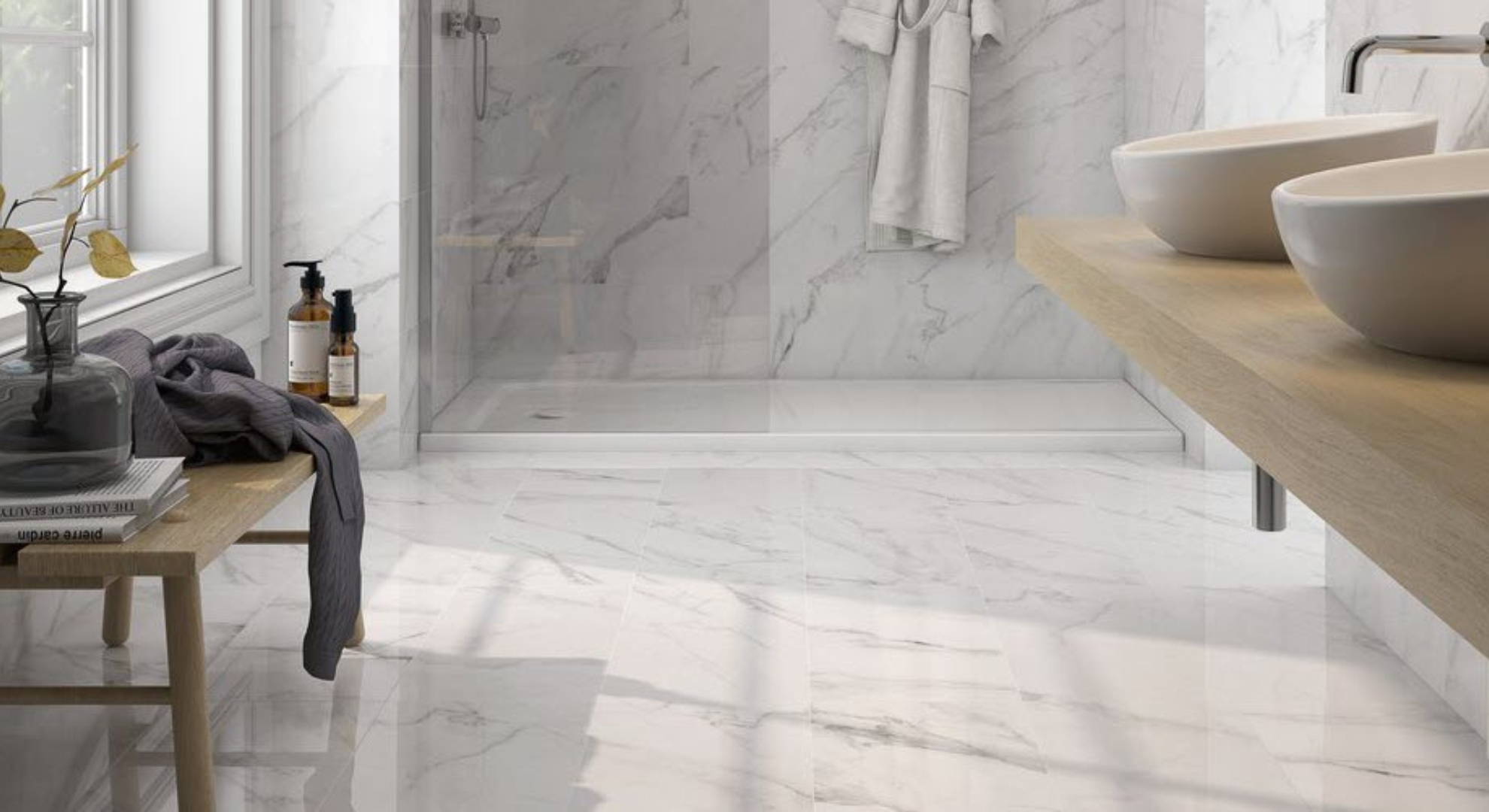
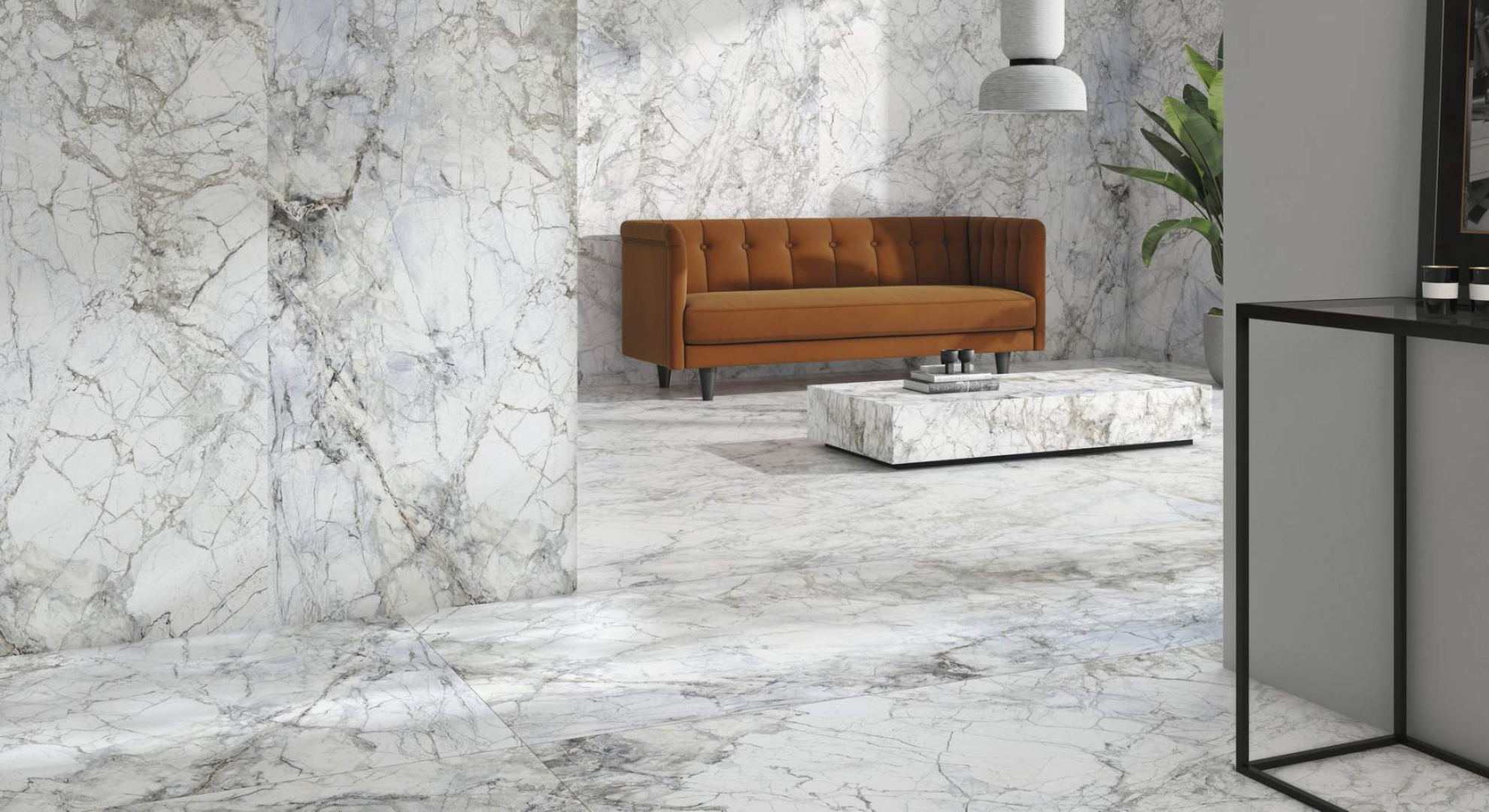
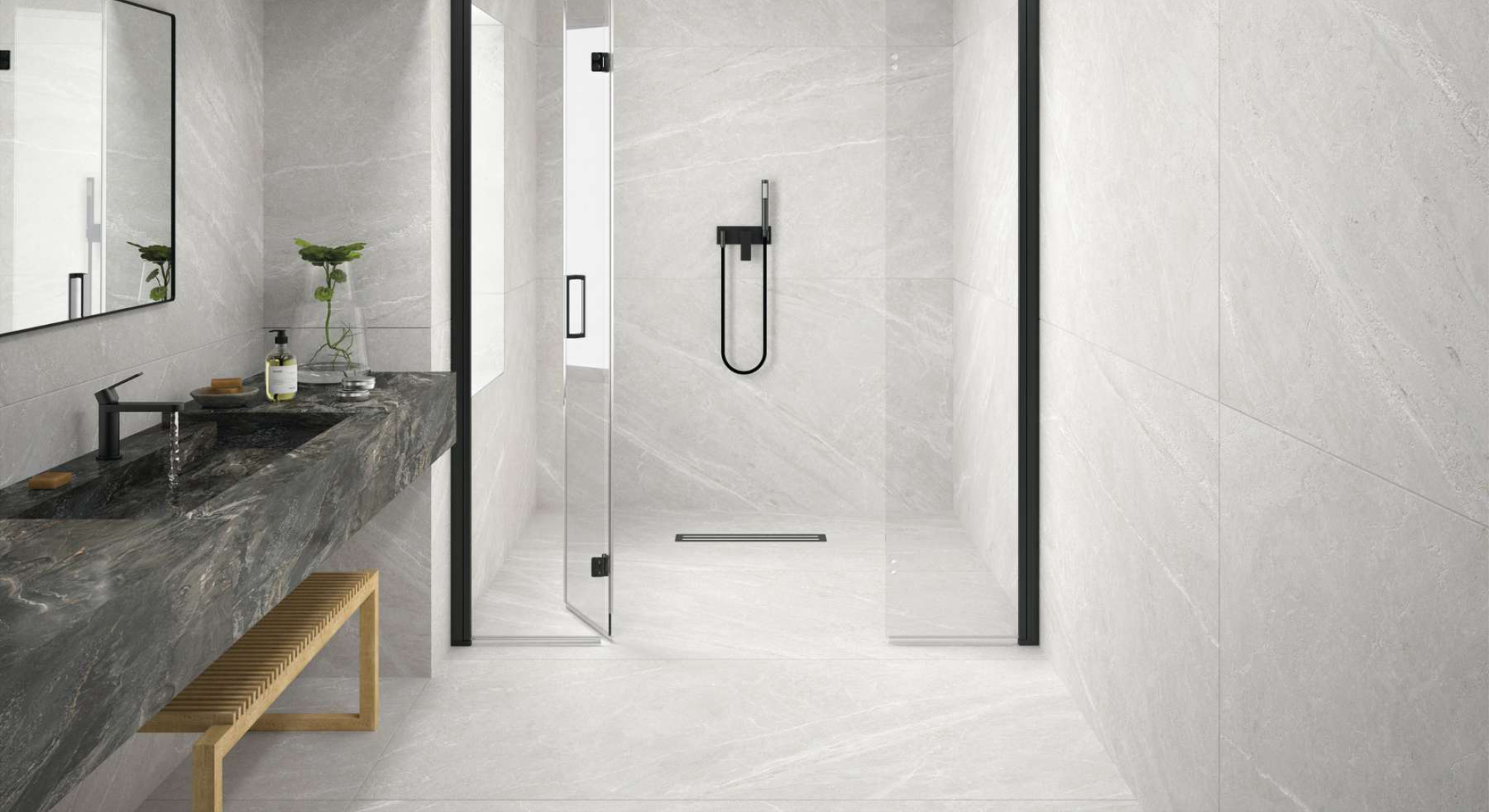
CHARACTERISTICS AND BENEFITS
Durability and Density: Porcelain is renowned for its remarkable durability, stemming from its high density and low porosity. These attributes render it highly resistant to the rigors of wear and tear, making it an ideal choice for high-traffic areas such as floors and countertops. Porcelain can endure extreme weather conditions and heavy traffic without succumbing to cracks, even in freezing temperatures.
Water Resistance: The exceptional water resistance of porcelain qualifies it for deployment in spaces exposed to moisture, such as bathrooms, kitchens, and even outdoor environments. Its minimal porosity prevents water penetration, averting issues like mold and rust.
Resistance: Porcelain‘s virtual stain-proof nature simplifies cleaning and maintenance, preventing stains and ensuring a pristine appearance. Porcelain offers skid-resistant surfaces (depending on how textured the surface is) and is fire-resistant, ensuring safety across various applications.
Diverse Aesthetic Options: Porcelain is available in a myriad of colors, styles, and patterns, affording extensive design possibilities to cater to diverse preferences. It adapts effortlessly to indoor and outdoor settings, spanning applications from kitchens and bathrooms to non-slip surfaces around pools. It can also mimic the appearance of various natural stones, wood, or even concrete.
Effortless Maintenance: Cleaning porcelain is a straightforward task, and damaged tiles can be replaced without necessitating a full surface overhaul.
Lightweight Practicality: Its lighter weight compared to natural stones eases structural burdens and simplifies installation.
Sustainability: The production of porcelain utilizes abundant raw materials and incorporates eco-friendly manufacturing processes. It is considered a relatively more environmental-friendly option as compared to other natural stones.
DISADVANTAGES
Fragility: Porcelain is susceptible to breakage when exposed to impact, in contrast to more robust materials like metal or plastic.
Cost Considerations: High-quality porcelain can be relatively expensive compared to alternatives like ceramic. Repairing broken porcelain can be a costly and intricate process, warranting consideration.
Temperature Sensitivity: Rapid temperature fluctuations can cause porcelain to fracture or shatter, necessitating care in such scenarios.
Slip Hazard When Wet: Porcelain surfaces can become slippery when wet, which poses safety challenges in spaces like bathrooms or kitchens.
WHY IS IT USED IN ARCHITECTURE AND DESIGN
Porcelain stands as a timeless embodiment of elegance and resilience, offering a diverse array of applications across the professional landscape. Its versatility allows designers and homeowners to explore creative possibilities, bringing their visions to life. Nonetheless, it is essential for professionals to be well-versed in its advantages and limitations to make informed decisions when selecting porcelain for their projects, thereby harnessing the full potential of this enduring and versatile material.
For more details log on our website : www.alasalmarbles.com or write us email : info@alasalmarbles.com
Follow our social media for regular updates...
Tag : Neolith, Cladding, Natural stone, Cladding materials, Selecting the best cladding material, Exterior, cladding, High-rise buildings, Most popular cladding material, Limestone, Travertine, Current trend in cladding, Quartzite, Choose a marble for kitchen top, Kitchen Islands, Natural marble top, Marble Countertop, Highly durable stone, Preferred options for the kitchen tops, Granite Counter tops, Cleaning the granite counters, Kitchen countertop, Best kitchen countertop, Marble, Marble, kitchen tops, Natural stones, Designing your kitchen, Granite, Caesarstone, Sintered stones, Marble and granite suppliers in UAE, Kitchen Counter, How to select kitchen counter, Quartz Slabs, Slate, Countertop options, Quartzite countertops, Cleaning quartzite countertops, Sintered Stone, Kitchen surface, Advantage of Neolith, Countertop designs, Quartz countertops, Budget friendly, kitchen countertops, Feature wall, Natural stone cladding, Granite cladding, AL ASAL MARBLE, Adhesive, Marble adhesive, Floor, Flooring, Commercial, Projects, Projects, Stones, Stones, Internal, External, Walls, Flexible, Countertops, Wall cladding, Engineered stone, Stone adhesive, Marble fixing, Marble flooring, Waterproofing, Sealing, Sealant, Marble cleaning, Marble suppliers in UAE, Marble manufacturer, Stains in marble, Marble sealer, Leading marble company in UAE, Best Marble company, Marble protection

